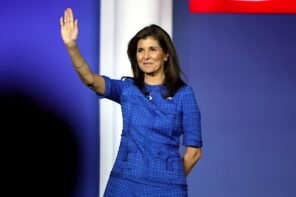The tragic dilemma we now face is that the murderous Assad regime in Syria should have been overthrown long ago, but the U.S. has no moral standing or credibility to be the agent of that overthrow.
The U.S. interest in Syria is not perceived by much of the world as a human rights interest. If the U.S. cared about human rights, it would not have armed Saddam Hussein after he gassed the Kurds in Iraq; it would not still be arming the Egyptian military after its coup and murder of thousands; it would not be arming Israel without demanding that Israel end the occupation of the West Bank and Gaza and create a Palestinian state living in peace with Israel.
The U.S., finally, would not have waited until one hundred thousand Syrians were killed to begin contemplating action against Assad.
Neither can nor should we be indifferent while watching as civilians are systematically murdered. The planet has shrunk to a size where we are in fact responsible for each other’s well-being and we must take that responsibility seriously.
What is needed is different strategic approach, an approach which is grounded in an expanded sense of moral imagination. Instead of trying to right every wrong at the moment, the U.S. should be involved in a global strategy to relieve the huge suffering of people on this planet.
Slow down the rush to militarism and instead let Obama use this moment to forge a whole new direction for the US’s role in the world. Congress would be wise to hold town hall meetings in every Congressional district to discuss the range of options before voting to support a military intervention.
In the fierce urgency of the current crisis in Syria, in which the U.N. is blocked from acting decisively because Russia and China will use their vetoes against any action that imperils Assad, President Obama should call a conclave of the world’s other countries, all of them, and let them together decide on what should be done with regard to saving the people of Syria from its rogue regime. The specific use of chemical weapons should be referred to the World Court for possible trial of whoever is responsible for that use in Syria.
Meanwhile, the deliberations of a world conclave should be open to the public, democratic, and not controlled by the United States or other Western powers, or any one group. Let that body decide whether there should be an intervention, and if so, led by whom, with what short term and long-term goals, and what mechanisms to ensure those goals are achieved. This creates a de facto global forum such as the UN should have been, by eliminating the ability of the Great Powers to veto any decisions made by the people of the world.
Hopefully, that global forum will come up with non-violent ways to hasten the end of the Assad regime. But if that body decides on an intervention, the Obama Administration should decide if it can bring the U.S. population along with that, in part by conducting public fora throughout the U.S. focused on the call for an intervention issued by the nations of the world participating in that open and democratic meeting. And if the people of the U.S. support it, then the U.S. should be part of that international intervention.
Clumsy? Undoubtedly. Postponing immediate action? Certainly. But this path would create a precedent precisely because it would slow down the hunger for more violence. It would allow the people of the world to introduce into that global forum the possibility of a different kind of logic in world affairs, a logic based on recognizing our mutual interdependence and mutual responsibility for the well-being of all.
This plan is not perfect, as many will readily point out. The governments of the world often do not actually represent their people, but often only an elite of wealth and power. The killing in Syria would not be stopped while the process went on. However, the Obama administration has all but explicitly said that the symbolic action they will take will not stop the killing either, nor would it overthrow the Assad government.
If President Obama were to use this moment to teach the world and the US about a new direction in dealing with the forces of evil, he could take his place among the great peacemakers of the human race.
In the fierce urgency of this moment we must look beyond the tired options and rhetoric that have brought us to this place. The options are only limited by the narrow visions of the elite and the powerful. The options are only limited by a discourse and set of assumptions that should have been replaced many decades if not centuries ago.
If not now, when?




